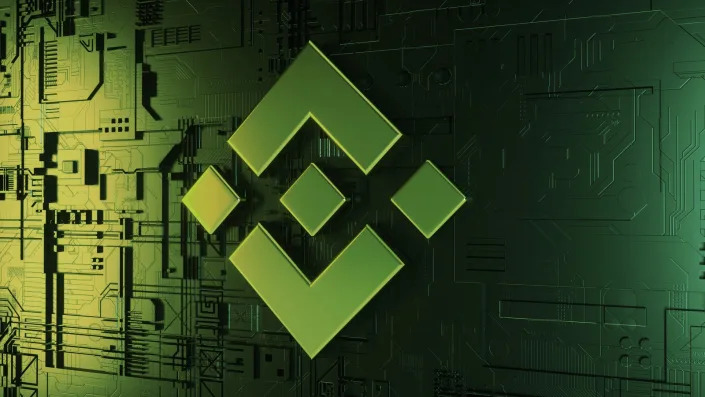A global drug cartel used Binance to launder millions, the DEA says. Here's how the world's largest crypto exchange is reportedly working with investigators to track them down.
Morgan Chittum
Wed, December 21, 2022

Vladimir Kazakov/Getty Images
A global drug cartel allegedly used Binance to launder tens of millions, an ongoing DEA investigation alleges.
Roughly $15 million to $40 million in illicit profits could have been funneled through Binance, according to Forbes, which obtained a search warrant.
Here's how the largest crypto exchange in the world is reportedly working with investigators.
A global drug cartel used Binance to funnel millions of the gang's illicit profits, an ongoing US Drug Enforcement Action investigation alleges.
Between $15 million to $40 million has been laundered through the largest cryptocurrency exchange in the world, according to Forbes, citing a search warrant it obtained.
Binance, which announced plans earlier this year to buy a minority stake in Forbes, is working with investigators to help track down suspects.
The investigation into the cartel's use of Binance began in 2020, when DEA informants on a different crypto trading platform found a user offering cryptocurrency in exchange for fiat currency, Forbes reported.
The DEA found one culprit, Carlos Fong Echavarria, who later pleaded guilty the charges that included money laundering and drug dealing. Binance assisted the agency by tracking Echavarria's trading activity on the blockchain, which totalled $4.7 million. By following on-chain activity, they were able to identify an additional account getting funds from Echavarria, per the warrant.
Another account holder, who hasn't been formally charged, allegedly bought nearly $42 million worth of cryptocurrencies, with at least $16 million being from drug money.
"This is actually an example of where the transparency of blockchain transactions works against criminal actors," Matthew Price, the senior director of investigations at Binance, told Forbes. "The bad guys are leaving a permanent record of what they're doing."
Earlier this year, Binance also helped the DEA in the agency's effort to seize over 100 accounts connected to laundering in Mexico.
Meanwhile, Binance is reportedly facing a probe from the US Department of Justice of its own, according to Reuters, citing four sources familiar with the matter. The report described the company's books as akin to a "black box," where not even Binance's former chief financial officer had full access to accounts during his almost three-year tenure.
In a statement to Reuters, Binance's chief strategy officer said the report's analysis and depictions of its business units were "categorically false.
Binance Responds to ‘FUD’: ‘A Healthy Company Will Not be Destroyed By a Tweet’

Stephen Graves,Andrew Throuvalas
Thu, December 22, 2022
Binance has published a lengthy statement in response to “recent media and community questions” regarding the company’s financial health in the wake of the collapse of rival crypto exchange FTX.
“FTX fell because it misappropriated user assets, and a healthy company will not be destroyed by a tweet,” read a translated version of the article posted to Binance’s Chinese blog.
In the article, titled “Facing FUD,” Binance hit back at allegations that its finances are a “black box,” raised in a recent Reuters article.
The firm wrote that it “does not need” to disclose detailed information on its financial status since it isn’t a publicly traded company. Binance added that it is self-sufficient and “financially healthy,” with “no external financing needs and external investors, and no intention to go public at this stage.”
The canceled Mazars audit
Binance’s most recent attempt to reassure customers about the state of its finances backfired when auditing firm Mazars pulled its proof-of-reserves assessment of the exchange from its website, and—according to Binance—dropped crypto firms as clients.
“The company stopped working with [all crypto companies] including Binance, not just Binance,” contested the exchange in its most recent blog post. It noted that traditional accounting firms, including the ‘Big Four,’ find it “very difficult to verify the overall reserve assets on the chain of encrypted exchanges,” adding that, “on-chain verification of the overall reserves of encrypted companies is a very new field.”
BNB Plummets as Binance Auditor Mazars Halts Work With All Crypto Firms
Earlier this month, users withdrew their funds from Binance en masse; much of that fear stemmed from Binance’s delay in satisfying USDC withdrawals at the time, which have since resumed and are processing normally.
“All users' assets in Binance are supported 1:1, and users also have the right to withdraw coins at any time,” said Binance. It explained that the delay on USDC withdrawals was due to Binance’s need to convert its BUSD holdings back into USDC.
In the blog post, Binance noted it has a debt-free capital structure, funds its daily operations through user transaction fees, and does not misappropriate user assets. It also hit back at allegations that it sought to “destroy” FTX, levied by the likes of former FTX CEO Sam Bankman-Fried and former FTX spokesperson Kevin O’Leary.
“Binance will not regard other exchanges as ‘competitors,” the exchange wrote, adding that it’s focused on “promoting and expanding industry adoption” and hopes to see more exchanges coexisting in the crypto ecosystem.
No comments:
Post a Comment